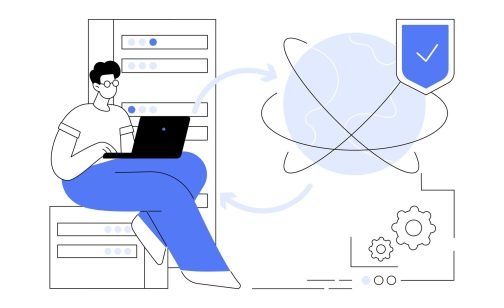Introduction to House Extension in Netherlands
A house extension in Netherlands is a popular solution for homeowners looking to add more space without moving. Whether it’s to accommodate a growing family, create a home office, or simply enhance comfort, extending your home can significantly improve both living conditions and property value. With Dutch cities often featuring compact homes and limited plots, a well-planned house extension becomes a smart and efficient way to maximize available space. This article explores everything you need to know about undertaking a house extension project in the Netherlands, from planning and regulations to design tips and budgeting.
Why Consider a House Extension in Netherlands?
There are several compelling reasons to opt for a house extension in Netherlands. One major factor is the high cost and limited availability of real estate. Moving to a larger property can be expensive and stressful, especially in urban areas like Amsterdam, Rotterdam, or Utrecht. A house extension allows you to adapt your current home to your changing needs without relocating. Additionally, home extensions often result in a considerable increase in property value, making it a worthwhile investment for the long term. Whether it’s a kitchen extension, loft conversion, garden room, or side return, the options are varied and customizable to suit different lifestyles and budgets.
Understanding Dutch Building Regulations
Before starting a house extension in Netherlands, it is crucial to understand the local building regulations. The Netherlands has strict zoning and construction laws, aimed at ensuring safety, aesthetics, and environmental sustainability. Depending on the type and size of your planned extension, you may need to obtain a bouwvergunning (building permit) from your local municipality. Some smaller extensions might fall under vergunningsvrij bouwen (permit-free construction), especially if they are within specified dimensions and located at the rear of the property. Always consult with your municipality or a licensed architect to confirm whether your project requires formal approval. Ignoring this step can result in fines or forced demolition.
Types of House Extensions
Rear Extensions
A common choice for a house extension in Netherlands, especially in terraced houses, is a rear extension. This involves extending the back of the house into the garden, often to create a larger kitchen or living area. These extensions are particularly effective in enhancing indoor-outdoor flow and letting in more natural light.
Side Return Extensions
Ideal for Dutch properties with unused alleyways or side spaces, side return extensions utilize this narrow strip of land to create a more spacious interior layout. Often combined with a rear extension for an L-shaped footprint, this type of extension adds considerable space while maintaining the home’s existing footprint.
Loft Conversions
Loft conversions are one of the most cost-effective ways to expand your home vertically. Many Dutch homes have steeply pitched roofs, offering ideal conditions for creating additional bedrooms, home offices, or playrooms in the attic.
Garage Conversions
Another great option is converting an existing garage into a living space. In urban areas where parking might not be essential, this approach allows homeowners to gain a functional room without altering the house’s external structure.
Glass Extensions and Garden Rooms
Glass box extensions and garden rooms are trending in the Netherlands for their sleek design and light-filled interiors. These are great for creating home offices or lounges that connect with the outdoor environment.
Design Considerations
When planning a house extension in Netherlands, it’s important to blend aesthetics with functionality. Dutch architecture often features clean lines, large windows, and sustainable materials. Working with an architect or interior designer familiar with local styles can help maintain the home’s character while incorporating modern elements. Consider how the extension will affect natural light, views, insulation, and access. Using environmentally-friendly materials and energy-efficient systems will not only lower future energy bills but may also qualify for subsidies or tax benefits.
The Role of Architects and Contractors
Hiring a professional architect or contractor is highly recommended for a successful house extension in Netherlands. An architect can help you maximize space, comply with local regulations, and develop a design that suits your lifestyle. A contractor will turn those plans into reality, coordinating the various trades and ensuring everything is done to code. When selecting professionals, check their experience, certifications, and previous projects. Always get multiple quotes and request detailed contracts outlining timelines, costs, and responsibilities.
Timeline and Process
A typical house extension in Netherlands takes between 3 to 9 months, depending on complexity and permit requirements. The process usually involves the following stages:
- Initial Consultation – Discuss goals, budget, and feasibility
- Design Phase – Architects create detailed plans
- Permit Application – Submit documents to the municipality
- Construction – Actual building work begins
- Inspection and Completion – Final check and handover
Delays can occur due to weather, permit approval times, or unexpected structural issues, so always allow for some flexibility.
Cost of House Extension in Netherlands
The cost of a house extension in Netherlands varies widely depending on size, materials, and location. On average, you can expect to pay between €1,500 to €3,000 per square meter for a standard extension. High-end designs or specialist features like underfloor heating, smart home systems, or custom glazing will add to the cost. It’s crucial to set a realistic budget, include a 10-15% contingency for unexpected expenses, and get detailed estimates from builders before committing to the project.
Financing Your House Extension
Several financing options are available for homeowners in the Netherlands. These include:
- Savings – The most straightforward option, although not always feasible
- Mortgage Extension – Increasing your current mortgage to fund the project
- Home Improvement Loans – Offered by most Dutch banks with flexible repayment terms
- Subsidies and Tax Benefits – Especially for energy-efficient or sustainable construction
Always consult with a financial advisor to explore the best financing method for your situation.
Common Mistakes to Avoid
- Skipping Permits – Can lead to legal and financial problems
- Underestimating Costs – Always add a contingency buffer
- Ignoring Design Integration – The extension should harmonize with the existing structure
- Hiring Unqualified Contractors – Leads to poor workmanship and delays
- Neglecting Neighbors – Discuss plans in advance to avoid disputes
Conclusion
A house extension in Netherlands is an excellent way to enhance your living space and increase your property value. Whether you’re adding a modern kitchen, an extra bedroom, or a sunlit garden room, the key to success lies in careful planning, compliance with local regulations, and hiring the right professionals. With the right strategy and support, your extension project can transform your home into the perfect living environment for years to come.
4o














